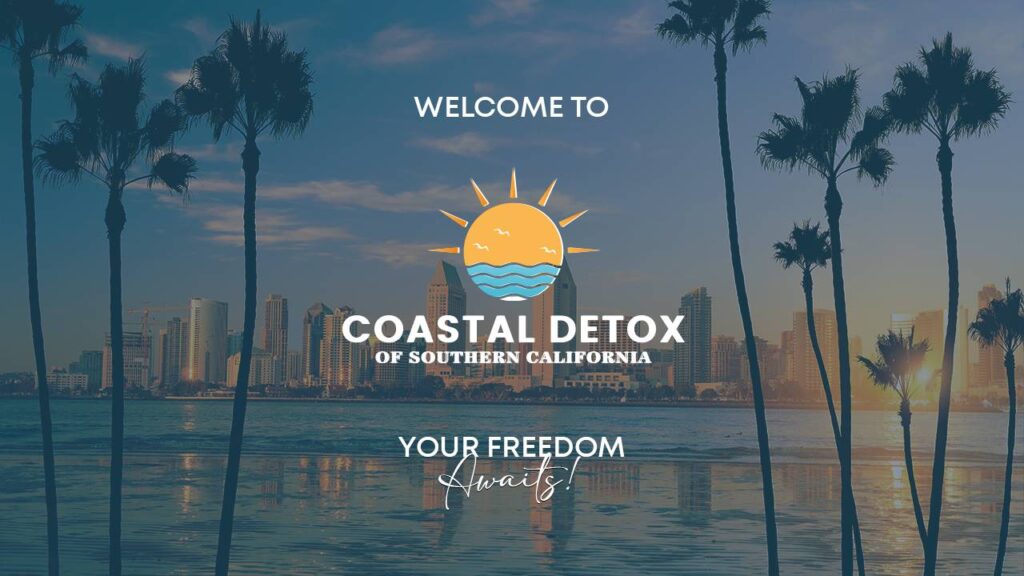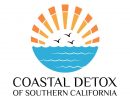Exploring Refreshing and Healthy Alternatives to Alcohol and Drugs
Recovery from substance abuse isn’t just about stopping harmful behaviors—it’s about discovering new, fulfilling ways to live. At Coastal Detox of Southern California, we understand that finding healthy alternatives to alcohol and drugs is a crucial part of the healing journey. Whether you’re in early recovery, supporting a loved one, or simply looking to make healthier lifestyle choices, exploring these alternatives can open doors to a more vibrant, authentic life.
Why Healthy Alternatives Matter in Recovery
When people use alcohol or drugs, they’re often seeking specific feelings or experiences: relaxation, social connection, excitement, or escape from stress. The key to lasting recovery lies in finding healthier ways to achieve these same positive feelings. Healthy alternatives don’t just fill the time that was once spent using substances—they actively contribute to physical wellness, mental clarity, and emotional stability.
Research shows that engaging in positive activities triggers the brain’s natural reward system, helping to rebuild healthy neural pathways that may have been damaged by substance use. This process, known as neuroplasticity, demonstrates that recovery isn’t just possible—it’s a natural capacity of the human brain. According to the National Institute on Drug Abuse, evidence-based treatment approaches that incorporate healthy lifestyle changes significantly improve long-term recovery outcomes.
Physical Activities That Energize and Heal
Outdoor Adventures
Southern California’s beautiful climate makes it perfect for outdoor activities that naturally boost mood and energy. Consider these refreshing alternatives:
Surfing and Water Sports: The rhythmic motion of waves and the focus required for balance create a meditative state that many find deeply therapeutic. Our coastal location offers endless opportunities to connect with the ocean’s healing power. At Coastal Detox of Southern California, we incorporate water-based activities as part of our holistic treatment approach.
Hiking and Nature Walking: Studies consistently show that spending time in nature reduces stress hormones and increases feelings of well-being. The University of California, Berkeley’s research demonstrates that exposure to natural environments can reduce symptoms of depression and anxiety. Local trails offer everything from gentle beach walks to challenging mountain hikes.
Cycling and Running: These activities release endorphins—the body’s natural “feel-good” chemicals—while building physical strength and endurance.
Mind-Body Practices
Yoga: This ancient practice combines physical movement, breathing techniques, and mindfulness. Many recovery programs, including those at Coastal Detox, incorporate yoga because it helps manage stress, improve sleep, and build body awareness. Research from Harvard Medical School shows that yoga can be as effective as some medications for treating anxiety and depression.
Martial Arts: Activities like karate, taekwondo, or Brazilian jiu-jitsu provide structure, discipline, and a sense of accomplishment while building physical and mental strength.
Dance: Whether it’s structured classes or simply moving to music at home, dance is a joyful way to express emotions and connect with your body.
Creative Outlets for Expression and Healing
Art and Crafts
Creative expression can be incredibly therapeutic, offering a way to process emotions and experiences that might be difficult to put into words.
Visual Arts: Painting, drawing, photography, or sculpture allow for non-verbal expression of feelings and experiences. Art therapy has been shown by the American Art Therapy Association to be particularly effective in addiction treatment.
Music: Playing instruments, singing, or even just listening mindfully to music can regulate emotions and provide a healthy outlet for feelings.
Writing: Journaling, poetry, or creative writing can help process experiences and track progress in recovery.
Hands-On Activities
Gardening: Nurturing plants provides a sense of purpose and connection to natural cycles of growth and renewal.
Cooking: Preparing healthy, delicious meals is both creative and nurturing, and it supports physical recovery.
Woodworking or Crafts: These activities require focus and patience while creating something tangible and meaningful.
Social Connections and Community Building
Recovery doesn’t happen in isolation. Building healthy relationships and community connections is essential for long-term success.
Support Groups and Communities
12-Step Programs: Alcoholics Anonymous, Narcotics Anonymous, and similar programs provide structure, accountability, and community support. The Substance Abuse and Mental Health Services Administration (SAMHSA) recognizes peer support as an essential component of recovery.
Recovery-Focused Groups: Many communities offer specialized support groups for different populations, including LGBTQ+ individuals, young adults, or people with dual diagnoses.
Hobby-Based Communities: Joining groups based on shared interests—from book clubs to hiking groups—creates natural opportunities for sober socializing.
Volunteer Work
Helping others provides a sense of purpose and perspective that can be incredibly healing. Whether it’s working with animals, helping at food banks, or supporting other people in recovery, volunteer work builds connection and meaning.
Mindfulness and Spiritual Practices
Meditation and Breathwork
These practices help develop the ability to observe thoughts and feelings without being overwhelmed by them—a crucial skill in recovery.
Mindfulness Meditation: Simple breathing exercises and present-moment awareness can be practiced anywhere. Research from Johns Hopkins University shows that meditation can reduce anxiety symptoms by up to 60%.
Guided Meditation: Apps and online resources make it easy to explore different meditation styles. The National Center for Complementary and Integrative Health provides evidence-based information about meditation’s benefits for mental health.
Breathwork: Specific breathing techniques can help manage anxiety, improve sleep, and create feelings of calm and clarity.
Spiritual Exploration
Many people find that recovery includes exploring their spiritual beliefs and practices, whether through traditional religion, nature-based spirituality, or personal philosophy. Our Native Traditions & Spiritual Treatment program recognizes the importance of spiritual healing in the recovery process.
Refreshing Beverage Alternatives
Part of recovery often involves finding new drinks to enjoy in social situations or to replace the ritual of drinking.
Mocktails and Creative Non-Alcoholic Drinks
Herbal Teas: Hot or iced, herbal teas offer countless flavors and many have additional health benefits.
Kombucha: This fermented tea provides probiotics for gut health and comes in many flavors.
Fresh Juices and Smoothies: Nutrient-dense and naturally energizing, these drinks support physical recovery.
Sparkling Water Combinations: Add fresh fruits, herbs, or natural flavors for a festive, refreshing drink.
Building Your Personal Toolkit
The most effective approach to finding alternatives is to experiment and discover what works best for you. Consider these steps:
- Identify Your Needs: What were you seeking when you used substances? Relaxation? Energy? Social connection?
- Start Small: Choose one or two activities to try rather than overwhelming yourself with too many changes at once.
- Be Patient: It takes time to develop new habits and interests. What doesn’t appeal to you today might become meaningful later in your recovery.
- Seek Support: Share your experiences with others in recovery, counselors, or supportive friends and family.
- Stay Open: Recovery is a journey of discovery. Stay curious about new possibilities and ways of being.
Professional Support Makes the Difference
While exploring healthy alternatives is an important part of recovery, professional treatment and ongoing support are often necessary for lasting success. According to the National Institute of Mental Health, integrated treatment that addresses both substance use and co-occurring mental health conditions leads to better outcomes.
At Coastal Detox of Southern California, we understand that recovery is a holistic process that addresses the physical, emotional, and spiritual aspects of healing. Our comprehensive treatment programs include evidence-based therapies, holistic approaches, and individualized care plans that help each person discover their own path to wellness. We incorporate many of the activities mentioned above—from art therapy to yoga to outdoor activities—as part of our therapeutic programming.
Taking the Next Step
Recovery is about more than stopping substance use—it’s about creating a life so fulfilling and meaningful that you no longer need substances to feel complete. The healthy alternatives we’ve explored here are just the beginning. Each person’s recovery journey is unique, and what works for one person may not work for another.
If you or someone you love is struggling with substance abuse, remember that help is available. Professional treatment can provide the foundation and support needed to explore these healthy alternatives safely and effectively. The Centers for Disease Control and Prevention emphasizes that comprehensive treatment approaches significantly improve recovery success rates.
At Coastal Detox of Southern California, we’re committed to helping individuals and families find their path to recovery. Our experienced team provides compassionate, comprehensive care that addresses the unique needs of each person we serve through our medical detox, alcohol treatment, and specialized programs.
Ready to explore a healthier, more fulfilling life? Contact Coastal Detox of Southern California today for a free confidential assessment and insurance verification. Your journey to wellness starts with a single step, and we’re here to support you every step of the way.
At this time we do not accept Medi-Cal, however private pay options are available.
About Coastal Detox of Southern California: Located in the heart of San Diego County, Coastal Detox of Southern California offers comprehensive addiction treatment services including medical detox, residential treatment, and dual diagnosis care. Our evidence-based approach combines traditional therapies with holistic healing modalities to support lasting recovery.
Clinically Reviewed for Accuracy by Kay Saffe, LPCC – Clinical Director at Coastal Detox of Southern California









